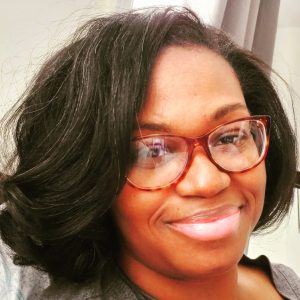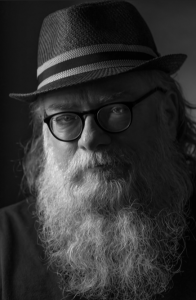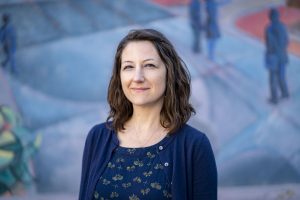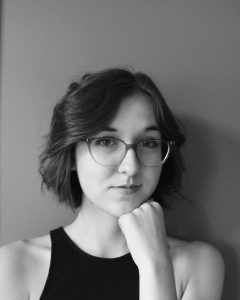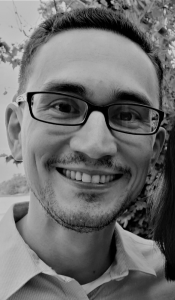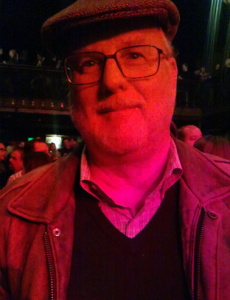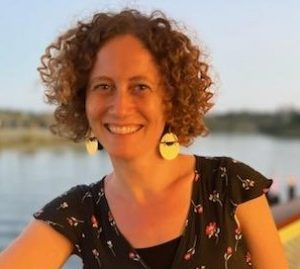
The man standing across from me has a long, barbed scar cutting straight down his chest. He’s leaning against the wall’s wooden slats, sweating heavily and breathing hard.
Beside me, a younger man points to his own chest, his own matching scar. “When did you get yours?” he asks.
They meet each other’s eyes, then begin to talk. They compare surgeries, both double-bypass, open-heart. They count blessings and trade tips for the future. “No more ice cream,” the older man says, and we all laugh.
It may sound like we’re in a medical unit of some sort, a hospital wing or rehab facility. In fact, we’re in my favorite spot in Philadelphia: the sauna of my local YMCA.
I started coming here less than a year ago. It’s only recently that I’ve begun to understand how meaningful it is to have this space in my life. This is a space to sweat, obviously, and a visitor won’t be in there long before their whole body is drenched. But it’s so much more than that.
The main “much more” are the people. I almost wrote “characters.” But to call them characters would flatten us all, add a quality of shallowness and goofiness to the enterprise, when in reality it’s anything but. Here is a space where people with worlds of differences in everything from age, race, religion, strength, health, agility and body type come together in temperatures soaring past 100 degrees, for as long as we can comfortably stand it. Sometimes we talk; sometimes we sit in amicable silence. If the others are like me, then when they’re in the dim wood-paneled room by themselves, they close their eyes and meditate, or pray.
I suppose this is what it means to be part of a religious community–one’s local church, temple or mosque. For many who have such a space, perhaps it’s not uncommon to find oneself surrounded each week by people from different backgrounds but with one shared goal. In the case of the sauna, that shared goal is good health. Thus, there is little talk of politics or the news. Our job is to help one another stay strong and heal, not tumble into conversational landmines. Our job is to help make each other well.
Growing up, I never had any religious group. My older brother went to Hebrew School in preparation for a Bar Mitzvah. Did he find community there? Was it a kind of second home for him? If so, he never said. When it was my turn to consider doing the same, my mother shook her head. “The only reason you should have a Bat Mitzvah,” she told me, “is to get money.” I did want to get money, yet even at age eleven had the good sense to know this was not the way to go about it.
Religious rituals in my world seemed random and muddy. My father’s mother lit candles Friday night in her home, but no one told me why. My mother gathered us to light the menorah, sometimes, and we got gifts, I think, though the only one I remember is a plain brown towel that was so rough and hideous I wonder to this day if it was meant to be some kind of joke, the kind without a punchline.
In my twenties, I thought about joining a temple. I wanted community. I wanted to meet people, to feel surrounded by families, food, something bigger than myself. I also, truthfully, thought it could be a good place to pick up clients for my budding freelance copywriting business.
At the Friday night service, I was so thoroughly confused that at one point I turned to the young woman sitting next to me and told her there was a problem with my prayer book. It appeared to have been printed backwards. “The Siddur is read from right to left,” she told me. I felt my face turn scarlet and mumbled my way through the rest of the evening. Though she was wonderfully kind, and there was indeed a joyful dinner afterward, the learning curve felt too steep. I never went back.
This past winter, I decided to celebrate Hannukah for the first time in my adult life. I made the decision because my partner’s mother had mailed us a plastic Christmas tree. Since we decided to decorate the tree, it seemed only right to also light the menorah.
It embarrasses me to say this, but it is the truth: I had to Google what Hannukah actually is. Either I couldn’t remember what I’d learned or I never fully knew. Something about oil, eight days, burning, light. I purchased a menorah at T.J. Maxx. When we lit the candles, I didn’t know what to say. I looked at my daughter, bowed my head and told her, “Namaste.”
It’s a strange position to be in, to understand oneself as Jewish and yet feel no sincere connection to the religion. My father, who passed away this past spring, is part of the last generation to be physically touched by World War Two. He was born in a Jewish ghetto in Japan-occupied Shanghai and later lived in a refugee camp in Cyprus, then in Israel, before coming to the U.S. at age eleven.
He rejected all religious practices, had an uncertain view of God. He called himself a “cultural Jew.” Maybe this was true for him, a taxi driver in New York City during the height of Woody Allen movies and Lenny Bruce comedy. But the phrase holds no meaning for me, a woman whose early cultural life was shaped by hip hop, sitcoms, and John Hughes movies.
“You should write more about being Jewish,” my father always told me. “You have such a unique perspective as a third generation of survivors.”
“I don’t know what it means to be Jewish,” I always replied. “I don’t relate to being Jewish at all. I never even think about it.”
“Exactly,” he would say. “That’s the perspective.”
So, then, where to go?
These days, the sauna is my temple, sweating my personal purification ritual. It is the perfect place for a woman like me. Faithful, without a faith.
And the truth? One thing I love most about this space is its freedom from doctrine, its neutrality, its existence as a place where no conversation drives too vigorously down any particular lane. The woman who sat beside me two weeks ago told me firmly that she believes in home-schooling, that she’s worried about what could happen if the internet shuts down, that “times are changing fast.” That was as specific as she got. Times are changing fast. A sentiment few would disagree with.
The two men who sat on the lower bench last week talked about how great the neighborhoods around here used to be, how everyone used to get along. They lamented how the city had changed. They stopped themselves before getting into specifics. They wiped the sweat off their brow with their forearms, nodded, laughed, drank their water.
As I listen to it all, I wonder, is this not unlike religious ceremony? We use careful words.
We find common ground in injuries, arthritis. Popping knees and slipped discs. Bee pollen as a cure for asthma. Peppermint oil for cardiovascular health. The “silver sneakers” crew talk about the temperature of the swimming pool, who was late to class, who is always late to class, and the small hot room fills with the wild laughter of seventy-year-olds sounding as delighted as naughty children.
In this way, we seek to protect one another from certain outside harms—the world’s harsh divisions, its spitting animosity. We make space for what is here, a shelter that, though we don’t acknowledge it as such, we all surely feel on some level is protected territory. We gather for a sacred bond, however brief, among people who are different from ourselves, yet so alike.
Let me not romanticize what the space is. There are phones and gadgets. People staring at screens. Young guys who don’t know how to modulate their voices for small, quiet spaces. There is the noisy crinkle of water bottles; the tinny echo of loud music through headphones; someone talking on their cell.
Nonetheless, it is what I have, the only temple I do have. So please, let me find glory here. Let me tell you that sometimes we sit together, and we say nothing at all. We see the scars on one another’s bodies. We match them to our own, or else we choose not to ask, decide not to tell. We allow the heat to work on us, allow our pores to open. We come here as strangers, in search of what is higher than ourselves. We seek ways to become more purely ourselves.
It is in this space that we find our way both into our bodies and out of them, a way to live comfortably in our own skins and perhaps touch on something just beyond. We close our eyes. We breathe. And if all we did was sweat, in the end, it would be enough.
Becky Tuch is a fiction and nonfiction writer, based in South Philly. Her stories have won awards and fellowships from Moment Magazine, The MacDowell Colony and The Somerville, MA Arts Council. Additional writing has appeared in a variety of venues including Salon, McSweeney’s Internet Tendency, Tikkun Magazine, Gulf Coast, Post Road, and Best of the Net. She is also the Founder of Lit Mag News, a bestselling Substack dedicated to demystifying literary magazines. Learn more at www.BeckyTuch.com.


